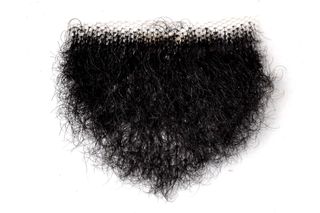
Why Do We Have Pubic Hair?
Pubic hair protects us from bacteria and other pathogens, reduces friction during sex, and also keeps our genitals warm.

If you subscribe to societal beauty norms surrounding pubic hair, you may consider it a menace that you need to meticulously address through regular grooming rituals. But why do we have those bushes of thick, coarse hair around our genitals at all? Pubic hair serves three main purposes.
The first, and probably the most important one, is that it protects us from bacteria, and other harmful pathogens, and in doing so, prevents us from getting yeast infections, vaginitis, and even UTIs. But, in addition to simply keeping bacteria away, it also traps dirt, debris, and other microorganisms, that could be potentially harmful — much the same way that eyelashes and nose hair do. “Pubic hair provides a protective barrier for our body,” Dr. Jessica Shepherd, a gynecologic surgeon from Dallas, told Health.
The second purpose of pubic hair is to reduce friction, primarily during sexual intercourse, but also other activities that may cause chafing in the region. That has also led to pubic hair being termed as a “dry lubricant” — suggesting that it’s easier to rub hair against hair, rather than skin against skin. Experts believe it can also act as a “natural lubricant” by keeping the moisture of our genitals intact.
Pubic hair is also believed to be useful in terms of keeping our genital areas warm, which is an important factor for sexual arousal. According to Dr. Sherry Ross, a gynecologist, experts have theorized that “pubic hair keeps our genitals warm, and that it provides a cushion during sex and other activities that put pressure on the vagina.”
Related on The Swaddle:
Debunking the Most Popular Myths About Hair Removal
There are evolutionary theories, too, about the purpose of pubic hair in humans. According to Robin Weiss, a researcher from University College London’s Division of Infection and Immunology, who spoke to Scientific American on the subject, the “thick bush of wiry hair” uniquely evolved around the genital regions of human beings, as “visual signaling” of sexual maturity to prospective sexual partners. Another theory is that pubic hair acts as an odor-trap for pheromones. “…you produce pheromones, which your pubic hair then traps. It does make sense that the smell from pubic hair can sexually entice your partner,” Dr. Ross told Self. (The existence, and usefulness, of pheromones is disputed.)
Yet, across the world, people continue to shave their pubic hair. “Many women think they are dirty and unclean if they haven’t groomed,” Dr. Tami S. Rowen, a gynecologist from San Francisco, told The Guardian. According to a 2016 study conducted in the US, almost 60% of the 3,316 women surveyed, said that they shaved their pubic hair for “hygiene reasons.” A number of them also admitted to “shaving down there” for their partners, or to feel sexier. In a 2015 survey, 60% of male respondents said preferred “hair-free” sexual partners, and the study concluded that “women are likely to report stronger associations with feelings of cleanliness, comfort, sex appeal, social norms of their peer group, and affordability as reasons for their chosen pubic hairstyle.” Cultural trends spawned by bikinis and thongs, in addition to the emergence of hairless actors on screen, and in pornogarphy, is also blamed for the phenomenon.
Related on The Swaddle:
The Shame and Scandal of Indian Women’s Hair Follicles
But, shaving pubic hair is not risk-free. For starters, injuries related to grooming of pubic hair appear to be rampant — between 2002 to 2010, there were around 11,700 such incidents, with a confirmed 335 people ending up at emergency rooms. In addition, research suggests that shaving pubic hair, may also potentially increase the risk of getting STIs — shaving can also cause micro-tears to occur in the top layer of the skin, leading to bacterial buildup, and eventually, transmission. The warm moist environment of the genitals, when combined with the irritation and inflammation caused by hair removal, becomes a happy culture medium for the growth of bacteria. Freshly shaved pubic areas and genitals are also considered more vulnerable to infections like herpes, according to clinicians.
So, there are plenty of reasons to think twice before taking it all off.
Devrupa Rakshit is an Associate Editor at The Swaddle. She is a lawyer by education, a poet by accident, a painter by shaukh, and autistic by birth. You can find her on Instagram @devruparakshit.
Related


Why Do We Feel So Tired After A Good Cry?
